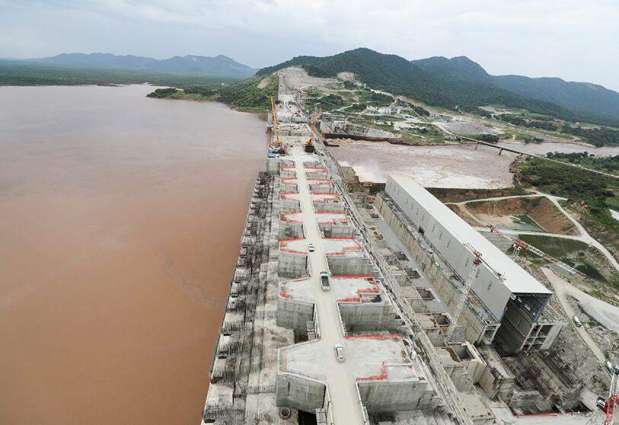The second-phase filling of the Grand Ethiopian Renaissance Dam (GERD) on the Blue Nile river has been successfully completed, Ethiopian Irrigation Minister Seleshi Bekel announced on Monday
MOSCOW (Pakistan Point News / Sputnik - 19th July, 2021) The second-phase filling of the Grand Ethiopian Renaissance Dam (GERD) on the Blue Nile river has been successfully completed, Ethiopian Irrigation Minister Seleshi Bekel announced on Monday.
The GERD project, under construction since 2011, has consistently raised concerns over water security in Egypt and Sudan. Earlier in the year, Ethiopia officially notified Egypt about the start of the second-phase filling during the rainy season in July. Cairo categorically rejected this unilateral decision, calling it a violation of the agreement between the three countries. On June 22, Sudan asked the UN Security Council to address the issue.
"Today, 19th July, 2021, the GERD reservoir reached overtopping water level. Currently, the incoming flow passes through both bottom outlets and overtopping. This year also we are experiencing extreme rainfall in the Abbay Basin (Blue Nile Basin). As a result, the GERD reservoir has filled rapidly," Bekel tweeted.
The minister noted that the dam was "a means to develop further and prosper together" and "can never be a treat."
Ethiopian Prime Minister Abiy Ahmed, in turn, congratulated the nation on the completion of the second filling
Meanwhile, Sudan's Energy and Oil Minister Gadein Ali Obeid warned that Addis Ababa's actions would negatively affect the production of electricity in his country. Khartoum seeks to take this matter to the International Court of Justice, as well as to the Human Rights Courts and the COMESA (Common Market for Eastern and Southern Africa) courts.
Upon completion, the GERD is set to become the largest dam in Africa. However, experts believe that its launch will inevitably lead to water shortages in Sudan and Egypt, which are located downstream of the river. Since the start of construction, the three countries have held more than a dozen meetings to resolve water distribution issues, but talks have reached a deadlock.




